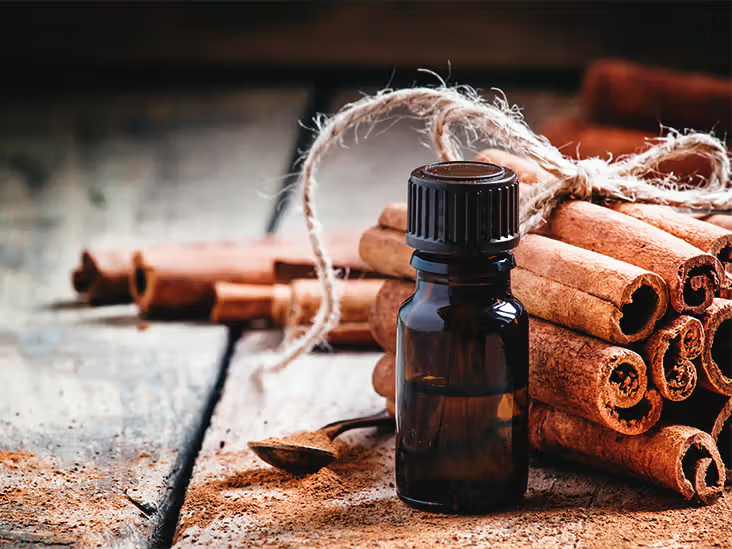Cinnamon, a beloved spice with a warm, aromatic flavor, has been cherished for centuries for its culinary and medicinal properties. Extracted from the bark of trees belonging to the genus Cinnamomum, this spice is more than just a kitchen staple. When combined with its concentrated derivative, cinnamon oil, it becomes a powerhouse of health benefits and versatile applications.
Types of Cinnamon
There are two main types of cinnamon:
- Ceylon Cinnamon (True Cinnamon): Known for its delicate flavor, Ceylon cinnamon is considered the premium variety. It has a lighter, sweeter taste and is often preferred for health-related uses due to its lower coumarin content.
- Cassia Cinnamon: More common and robust in flavor, cassia cinnamon is widely used in commercial food products. While it’s more affordable, it contains higher levels of coumarin, which may be harmful in large doses.
Cinnamon Oil: A Potent Derivative
Cinnamon oil is derived from either the bark or the leaves of the cinnamon tree. It is highly concentrated and contains compounds like cinnamaldehyde and eugenol, which are responsible for its distinctive fragrance and health benefits. There are two types of cinnamon oil:
- Cinnamon Bark Oil: Richer and more potent, this oil is used for therapeutic and perfumery purposes.
- Cinnamon Leaf Oil: Milder and more affordable, it’s often used in aromatherapy and skincare products.
Health Benefits of Cinnamon and Oil
- Antioxidant Powerhouse: Cinnamon is packed with antioxidants, such as polyphenols, which help combat oxidative stress and reduce inflammation.
- Anti-Microbial Properties: Cinnamon oil is a natural anti-bacterial and anti-fungal agent. It is effective against common pathogens, including Candida albicans and Escherichia coli.
- Blood Sugar Regulation: Cinnamon has been shown to improve insulin sensitivity and lower blood sugar levels, making it a valuable aid for people with type 2 diabetes.
- Heart Health: The spice may help lower LDL cholesterol and triglycerides while increasing HDL cholesterol, promoting cardiovascular health.
- Skin and Hair Care: Cinnamon oil is often used in DIY beauty treatments for its ability to stimulate blood circulation, promoting glowing skin and healthy hair growth.
Uses in Daily Life
- Culinary Delights: Cinnamon is a versatile ingredient in both sweet and savory dishes, adding depth and warmth to recipes.
- Aromatherapy: A few drops of cinnamon oil in a diffuser can create a cozy, uplifting atmosphere while helping to reduce stress.
- Natural Cleaning Agent: Due to its antimicrobial properties, cinnamon oil can be added to homemade cleaning solutions to sanitize surfaces.
- Topical Applications: When diluted with a carrier oil, Cinnamon and Oil can be applied to the skin to relieve pain or improve circulation.
- Pest Control: Cinnamon oil’s strong aroma deters insects, making it an excellent natural repellent.
Precautions
While cinnamon and its oil offer numerous benefits, they should be used with care:
- Dilution is Key: Cinnamon oil is highly potent and can cause skin irritation if applied undiluted.
- Moderation in Consumption: Excessive intake of cinnamon, especially cassia, can lead to liver damage due to its high coumarin content.
- Allergic Reactions: Always conduct a patch test before using cinnamon oil topically.
Conclusion
Cinnamon and its oil are versatile, natural products that can enhance your health, home, and culinary experiences. By understanding their types, benefits, and precautions, you can fully embrace the wonders of this ancient spice. Whether you’re savoring a cinnamon-spiced latte or diffusing cinnamon oil to uplift your spirits, you’re tapping into a tradition that has enriched lives for generations.











